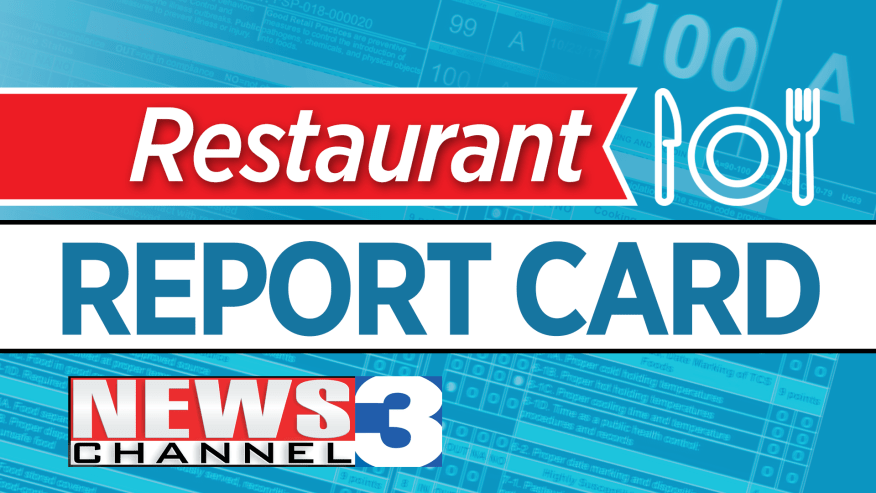MEMPHIS, Tenn. — The mayors of Memphis, Shelby County and six surrounding suburban municipalities have agreed to begin phase one of the Back-to-Business plan on May 4.
“We believe it’s time to slowly start opening our economy back up and get Memphians working again. As we have said since the beginning, we will continue to monitor this situation very closely to make sure our citizens remain safe and healthy,” said Memphis Mayor Jim Strickland in a released statement.
The Back-to-Business plan is a three-phase plan based on several indicators, including the number of new cases, hospitalizations, hospital capacity and testing and tracing capability.
However, some of the task force’s own criteria have not been met, despite officials making the reopening announcement Thursday.
According to the data, the area is still in the yellow status for the daily number of new cases as well as capacities for labs to process and get results back. The criteria would require the area move into the green zone before reopening.
WREG’s Stacy Jacobson asked Shelby County Mayor Lee Harris whether the criteria changed or if he could explain the discrepancy. He didn’t directly answer.
“We will continue to be vigilant, this process will go on for a very long time,” Harris said. “But we’ve gotta take advice from our healthcare professionals and they perceive a downward trend.”
WREG took the same question to Memphis Mayor Jim Strickland, first asking about labs’ abilities to process tests. He said their partners, like American Esoteric Laboratories, are in good shape. But then we asked why their capacities are labeled yellow in the chart.
“I don’t know,” Strickland said.
He added the health experts advising them are not looking at the individual categories and instead focusing on overall trends.
“The number of hospital beds taken up by COVID patients and new cases has remained static over the past month,” Strickland said. “They make a clear and convincing case Monday is the right day.”
In addition, the city will look at other indicators such as the current supply of PPE, if the public is following social distancing protocols and the number of ventilators in use.
Mayor Mike Palazzolo of Germantown says the city and the county “stuck together” and focused on the data.
“This was a regionally collaborative process,” Palazzolo said.
UTHSC’s Dr. Scott Strome helped analyze the data.
“We’ve seen the number of cases really stabilize, so we’re having the same number of cases every day with around 66 on average,” Strome said.
Last weekend, the county saw a spike after testing in certain nursing homes and 201 Poplar. Officials say they analyzed that spikes and concluded it could be contained.
“Those are more isolated areas,” Palazzolo said. “Once a plan of containment is put in place, it gives a different level of comfort.”
Mayors say they believe business owners are up to it, but they all tell us they encourage their citizens to call authorities if they see a business is not complying.
“I talked to a jeweler last night. They just have to unlock their door and they’ll be ready to do business,” Bartlett Mayor Keith McDonald said.
There will be at least two weeks between each phase. City leadership will be monitoring the situation and, if deemed necessary, can delay the next phase.
Strickland also emphasized the need to continue social distancing to maintain the success in flattening the curve.
Any business that opens early will be subject to closure, fines and fees.
Phase One
- Libraries will be allowed to reopen at 25% capacity; employees must wear masks
- No groups of 10 or more people
- Social distancing required
- Churches at 25% capacity
- Elective surgeries and diagnostic, medical and procedural visits allowed
- Telehealth encouraged
- Nursing homes continue to have precautions in place
- Elective dental visits/procedures allowed if medically necessary (fillings, extractions and root canal)
- Restaurants and bars at 50% capacity; must maintain social distancing; employees wear masks; no communal items
- Grocery stores at 50% capacity; require face masks and gloves for employees serving or preparing food
- Hardware stores at 50% capacity
- Retail stores and commercial business limited to 50% capacity; employees with customer interaction must wear masks
- Manufacturers and distributor companies must require face masks for all employees; symptoms check for employees; employees must be social distanced
- Offices must require face masks and symptom checks; employees must be social distanced
- Non -contact sport facilities will be allowed to reopen, but you cannot share equipment; employees must wear masks
- Basketball courts, baseball field and other contact sport facilities will remain closed
- Gyms will be limited to 25% capacity; workouts limited to 45 minutes
- Fully automated car washes allowed
- Hair, nail salons and spas to remain closed
- Theaters, sports arenas, auditoriums to remain closed
- Bowling alleys, indoor climbing facilities, etc to remain closed
- Festivals, public events are prohibited
Phase Two
- Groups of up to 50 allowed
- Libraries, churches, gyms to 50% capacity
- Contact sport facilities can open as long as they only allow a certain number of people
- Hair, nail salons and spas can reopen
Phase Three
- Libraries, churches, restaurants/bars, grocery stores, hardware stores, retail stores/commercial businesses, non-contact sports facilities and gyms to 75% capacity
- Elective surgeries, procedures allowed
- Entertainment/performance venues, recreation facilities, festivals, public events are prohibited, but subject to regulations regarding size of groups
This is a developing story.


















